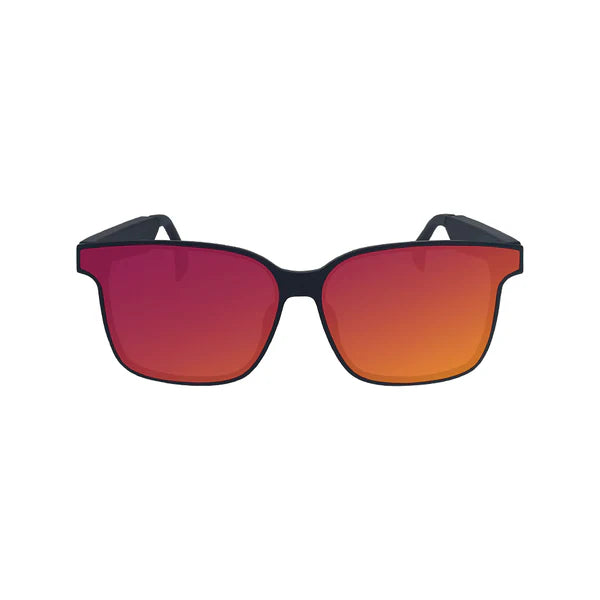Our sight is continually exposed to the sun's rays directly and indirectly. Blocking sunlight that hits the eyes, such as that which comes from the reflection of the sea, snow, road, or asphalt, it’s very important to maintain our visual health.
An effective option is to use polarized glasses to enjoy these types of activities without taking risks. Thus, to practice certain sports or drive it is necessary to have sunglasses with appropriate lenses. These are polarized glasses, which act as a filter for our vision against those annoying and harmful reflections.
At Manha Eyewear, we are clear that each activity requires specific glasses, with different treatments for the lenses. Polarized glasses are especially suitable for outdoor activities, such as water or snow sports, or driving. Do you still have doubts when choosing between normal or polarized sunglasses?
What Advantages Do Polarized Glasses Have?
Polarized glasses have the advantage of filtering reflected light and reducing glare on surfaces such as water, snow, or the road, making them especially useful for outdoor activities, such as fishing, skiing, or driving. Polarized glasses can also improve the clarity and contrast of vision, which can be beneficial in many different situations.
What are Better Polarized Glasses or those with a UV filter?
UV filter glasses and polarized glasses are not mutually exclusive, and in fact, glasses should ideally have both characteristics. UV filters protect your eyes from the sun's ultraviolet rays, which can be harmful in the long term, while polarized glasses reduce glare and improve clarity of vision. Therefore, it is advisable to choose glasses that have both UV filter and polarization.
What is Better Polarized or Normal Sunglasses?
This depends on the situation and the user's needs. Regular sunglasses can protect against UV rays and reduce light intensity, which can be useful in many different situations, such as walking around the city or doing outdoor sports on cloudy days.
However, polarized sunglasses are more effective at reducing glare and improving clarity of vision on reflective surfaces. Therefore, if you plan to carry out activities in environments with reflective surfaces, polarized sunglasses may be a better option.
How do you know if your Sunglasses are Polarized?
There are several ways to check if sunglasses are polarized or not:
- Looking through an LCD screen: If you place the polarized sunglasses in front of an LCD screen (such as a TV, laptop, or cell phone) and rotate the glasses while looking at the screen, you should see the screen go dark or dark. It disappears completely at certain angles. This occurs because polarized glasses block polarized light at certain angles.
- Looking through water reflection: If you are near a body of water and look through sunglasses while turning your head, you should see a reduction in glare and glare from the water compared to when you are not wearing polarized sunglasses.
- Looking through two pairs of polarized glasses: If you place two pairs of polarized glasses on top of each other and rotate one of them, you should see the light dim or disappear at certain angles.
- Look for a polarization logo: Many polarized glasses have a logo indicating that they are polarized, so you can look at the temples or lens of the glasses to see if there is a logo that indicates polarization.
It is important to keep in mind that not all sunglasses have polarization and that some verification methods may not be 100% accurate, so if you have doubts about whether your glasses are polarized, you can consult with our opticians and optometrists.
Benefits of Polarized Glasses:
Here are some of the benefits of wearing polarized sunglasses:
- They improve contrast in intense or diffuse light (they do not darken as much as normal sunglasses when we go from a very bright area to a darker one).
- They enrich the perception of colours.
- They minimize glare from the reflection of the sun's rays on certain objects or surfaces.
- They increase the high definition of details.
- They offer excellent sun protection.
- They protect 100% from UV rays.

